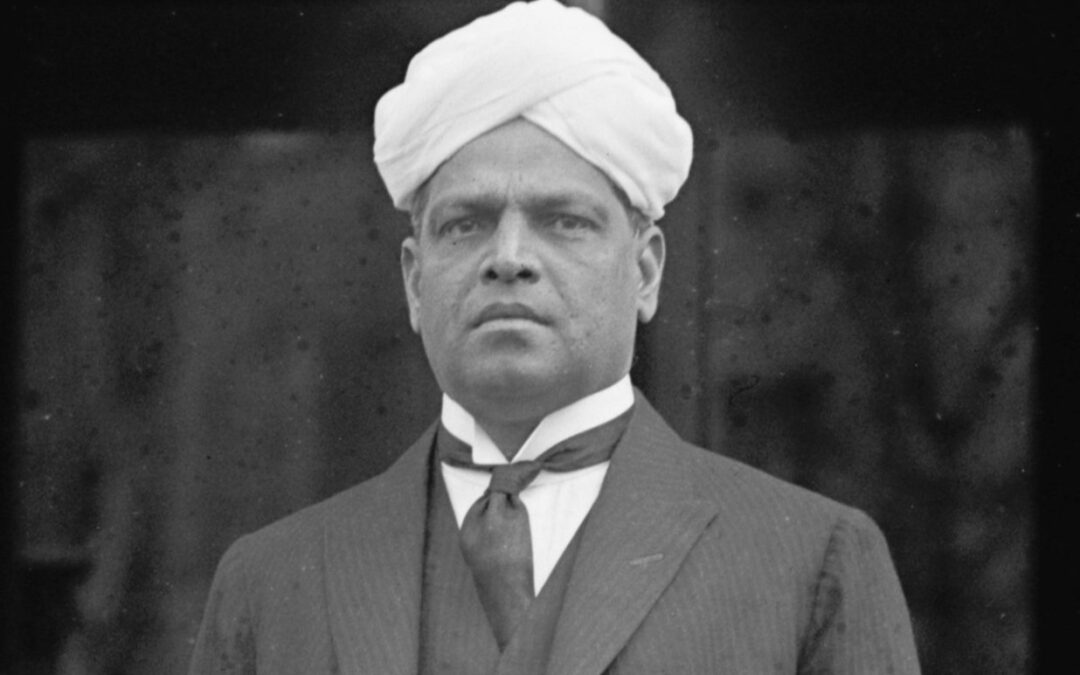Before the release of my book, India-Australia—Bharat’s Legacy of History, Connections and Diaspora, I wish to share historical insights and contemporary issues related to India and Australia that were not included in my work. This aims to spark curiosity among readers regarding the historicity of India-Australia relations.
By the 1920s, several thousand Indians lived in Australia as British subjects without civic and citizenship rights because of the ‘White Australia Policy’ enacted in 1901. Pre-independent British India transported thousands of Indian labourers to British colonies, termed coolies, or indentured labourers. After the abolition of slavery, the British introduced a new form of labour called the indentured labouring system. In Australia, Indians arrived voluntarily but shared the same status as coolies in Girmit countries.
This blog acknowledges Indian diplomacy in the 1920s, predating India’s independence, by exploring the life and contributions of Srinivasa Sastri, a notable figure in this context.
Srinivasa Sastri was born into an orthodox Brahmin family in Tamil Nadu in 1869. He mastered both English and Sanskrit at an early age. Before joining the Servants of India Society in 1907, he served as the principal of the Hindu High School in Madras. In 1915, he became the president of the Servants of India Society. Sastri joined the Indian National Congress, and the government nominated him to the Madras Legislative Council and later to the Imperial Legislative Council in 1916. In 1919, he was appointed to the Privy Council of the United Kingdom. Alongside Sir Tej Bahadur Sapru, Sastri founded the Liberal Party of India. Between 1935 and 1940, he served as the vice chancellor of Annamalai University in Madras state.
In the early 20th century, he travelled to Australia, New Zealand, and Canada to advocate for civic and social rights of Indians. In 1922, he became the first Indian diplomat to visit Australia. The acting premier of Western Australia in Freemantle, Perth welcomed him, and a representative of the Prime Minister accompanied him during his tour.
Sastri’s six-week stay in Australia involved engagements with individuals from diverse social backgrounds as a guest of the Commonwealth of Australia. He spoke at various meetings and met with state premiers and cabinet ministers. During his visit, he addressed the Australian Parliament in Melbourne, conferred with Prime Minister Billy Hughes and his cabinet, and spoke at a parliamentary dinner on June 27. The Australian press praised his English-speaking skills and dubbed him as a silver-tongued orator.
People remember Sastri as a prominent traveller, ranking second only to Gandhi among Indian travellers to South Africa. He was instrumental in negotiating equal rights for Indians abroad, strategically leveraging the concept of international liberalism to advocate for equality.
Critiques argue that a native diplomat like Sastri during the British Raj is an ode to colonialism. Figures like Sastri, often seen as mimic men, and facilitate colonial moralism that is acceptable to everyone. While he admired the British ideals, he advocated for Indian self-determination. However. He did not touch the Australia’s white-only policy, though he viewed it as inconsistent with the British Empire’s integrity. Sastri eventually left the Congress party because of suspicions about his nationalist views.
The White Australia policy remained central to Australian national identity until the late 20th century, with the Australian public having limited knowledge of educated Indians.
Sastri’s visit, while widely covered by the Australian press, ultimately had little impact on altering the White Australia Policy or gaining full citizenship for Indians.
My book also includes a chapter on General Cariappa, a renowned Anglophone diplomat who confronted the White Australia Policy more directly during his tenure as the Indian High Commissioner in Canberra from 1954 to 1956.
Notes
- Margaret Allen, The Silver-tongued orator advocates for Australian Indians: Srinivasa Sastri’s tour of Australia 1922, 2023 ANU Press.
- India’s First Diplomat: VS Srinivasa Sastri and the Making of Liberal Internationalism by Vineet Thakur, 2023.
